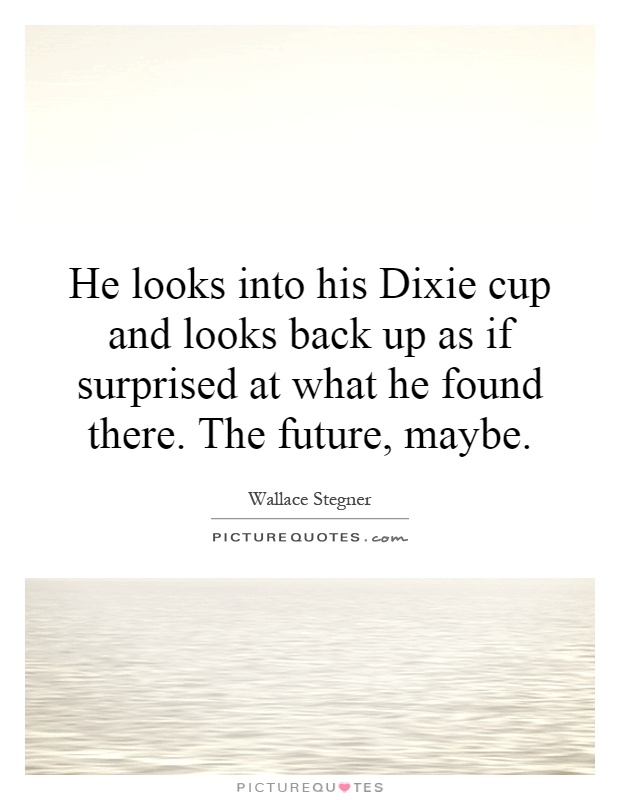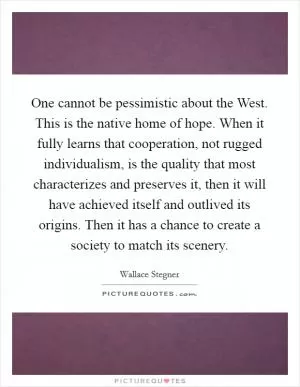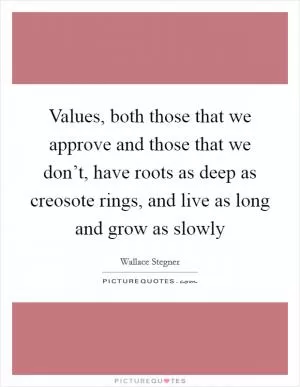He looks into his Dixie cup and looks back up as if surprised at what he found there. The future, maybe

He looks into his Dixie cup and looks back up as if surprised at what he found there. The future, maybe
Wallace Stegner was a renowned American writer known for his insightful and thought-provoking novels and essays. His works often delved into themes of nature, the American West, and the complexities of human relationships. One of his most famous novels, "Angle of Repose," won the Pulitzer Prize for Fiction in 1972 and solidified his reputation as a master storyteller.The quote, "He looks into his Dixie cup and looks back up as if surprised at what he found there. The future, maybe," captures Stegner's ability to capture the essence of a moment and infuse it with deeper meaning. In this simple act of looking into a Dixie cup, Stegner suggests a moment of introspection and contemplation. The protagonist is not just staring into a cup, but into the unknown possibilities of the future.
Stegner was a keen observer of human behavior and relationships, and his characters often grappled with questions of identity, purpose, and destiny. The act of looking into a Dixie cup can be seen as a metaphor for the search for meaning and direction in life. The protagonist is confronted with the uncertainty of the future, symbolized by the empty cup, and must confront his own hopes, fears, and desires.
Stegner's writing is characterized by its lyrical prose, vivid descriptions of the natural world, and deep psychological insight. He had a talent for capturing the nuances of human emotion and the complexities of the human experience. In the quote, "He looks into his Dixie cup and looks back up as if surprised at what he found there. The future, maybe," Stegner invites the reader to contemplate the mysteries of existence and the endless possibilities that lie ahead.
Overall, Wallace Stegner's work continues to resonate with readers today for its timeless themes and profound insights into the human condition. The quote captures the essence of his writing style and his ability to evoke deep emotions and provoke thought. Through his novels and essays, Stegner invites us to look beyond the surface of things and explore the deeper truths that lie beneath.












 Friendship Quotes
Friendship Quotes Love Quotes
Love Quotes Life Quotes
Life Quotes Funny Quotes
Funny Quotes Motivational Quotes
Motivational Quotes Inspirational Quotes
Inspirational Quotes